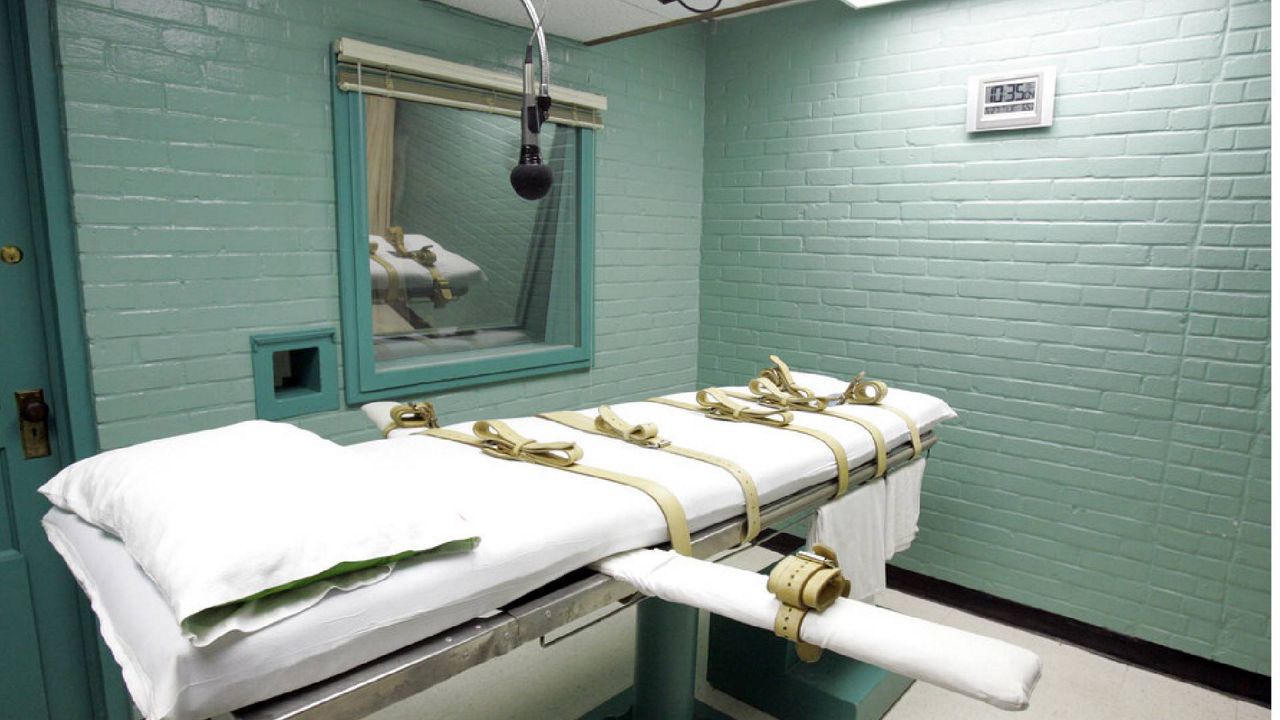John Henry Ramirez — who killed a convenience store clerk in Corpus Christi in 2004 — is scheduled to be executed for a fourth, and likely final, time on Wednesday night.
Ramirez, who was 20 at the time of the murder and a former Marine, had no prior criminal record when he encountered 46-year-old Pablo Castro after a three-day drug binge. Castro was taking the trash out at his job when Ramirez appeared. Drunk and high, Ramirez stabbed Castro 29 times and stole $1.25.
Ramirez’s case has had a number of twists and turns. Right after the crime, Ramirez fled to Mexico and was recaptured at the Texas-Mexico border in 2008. Convicted in 2009, Ramirez’s execution was stayed three times: twice by lower courts and once by the U.S. Supreme Court, which ruled last year that stopping Ramirez from having his pastor with him — and laying hands on him when he dies — violates his First Amendment rights.
Ramirez’s pastor, Dana Moore of the Second Baptist Church in Corpus Christi, has been making trips to visit Ramirez on Death Row once a month for four years. Moore said society would be better if Ramirez could live out his life in prison, helping others. Ramirez has admitted to his crime and wants Moore present to pray over him before he does.
“My role is to be a minister to John, and part of my ministry is being able to comfort him, and part of that is to touch him in some way,” Moore told Baptist Press. “John wants me to be able to touch him during the most stressful and difficult time in his life as he is being executed, and that physical touch is what I find in Scripture as very meaningful.”
Ramirez, who was denied clemency on Oct. 3, will be executed over the objections of the current Nueces County District Attorney Mark Ramirez, who opposes the death penalty. Castro’s four children filed an amicus brief, opposing Ramirez’s wish to pull the death warrant, writing that the decades of delay in Ramirez’s sentence had compounded their grief.
Ramirez will be the third of five executions scheduled this year. The Texas Court of Criminal Appeals granted a stay of Melissa Lucio’s execution in April. The Texas Commission to Abolish the Death Penalty and the Texas Defender Service, which oppose the execution, said evidence of a traumatic childhood and a suicide attempt were not considered at Ramirez’s original trial.
“Today, Texas’ penchant for bloodlust has overtaken prosecutorial discretion and the rights of the people whom our local officials represent. John Ramirez will be executed tonight over the objections of the local prosecutor,” Texas Defender Service tweeted. “Real people’s lives are destroyed every time Texas politicians fight against prosecutors who champion a more humane legal system.”
Six out of 10 Americans favor the use of the death penalty for people convicted of murder, according to a 2021 Pew Research Center survey. But the use of the death penalty continues to decline across the country and in Texas. Death sentences peaked in Texas in 1999 — at 48 — and have dropped precipitously in the last two decades, falling to single digits the last 7 years.
“Texas, like the rest of the country, has been slowly moving away from the use of the death penalty,” said TCADP Executive Director Kristin Houlé Cuellar. “Part of it is the fact that death sentences have never been uniformly imposed in the state. Half of our 254 counties have never sent anyone to Death Row. Historically — and currently — it remains isolated to a few counties.”
Harris County, for instance, accounts for more than 280 death sentences and 127 executions since 1982, according to the Death Penalty Information Center. Most death sentences are imposed in one of the state’s urban counties: Tarrant, Dallas, Harris and Bexar.
“The criminal justice system is inherently arbitrary from top to bottom, and really the greatest predictor of whether someone faces a death sentence or not is geography,” Cuellar said. “It varies widely from county to county because the decision — that decision to pursue the death penalty — is being made by the elected District Attorney.”
Death penalty cases also are expensive to pursue, Cueller said. A trial for a potential death penalty case — which can include two months to seat a jury — can run upwards of $1 million.
“We’ve seen places that have had to raise taxes because their county spent near a million dollars just on a trial, and the meter starts running from the very moment that prosecutors decided to seek the death penalty,” Cuellar said. “It takes a long time for these cases to be brought to trial. The jury selection process is lengthy, and the trials themselves are expensive.”
Even when the prosecution seeks the death penalty, juries have become more inclined to vote for life without parole, especially now that mitigating circumstances can be considered. In 2019 alone, half the time prosecutors pursued the death penalty, the eventual sentence was life in prison, Cuellar said. And the Texas Board of Pardons and Paroles chooses to commute certain cases from the death penalty to life in prison.



